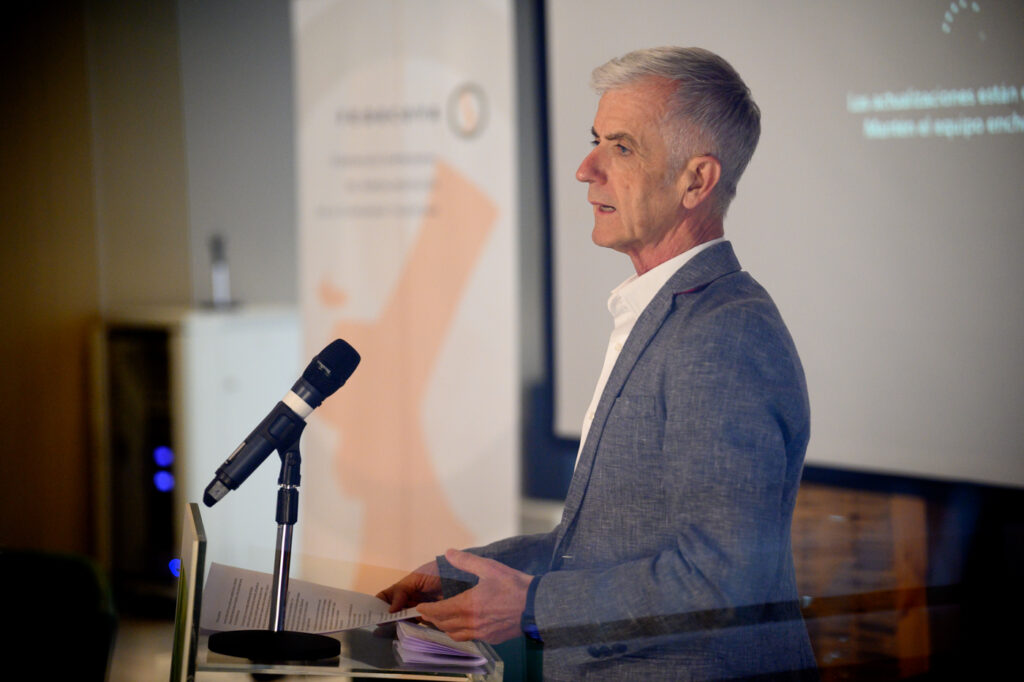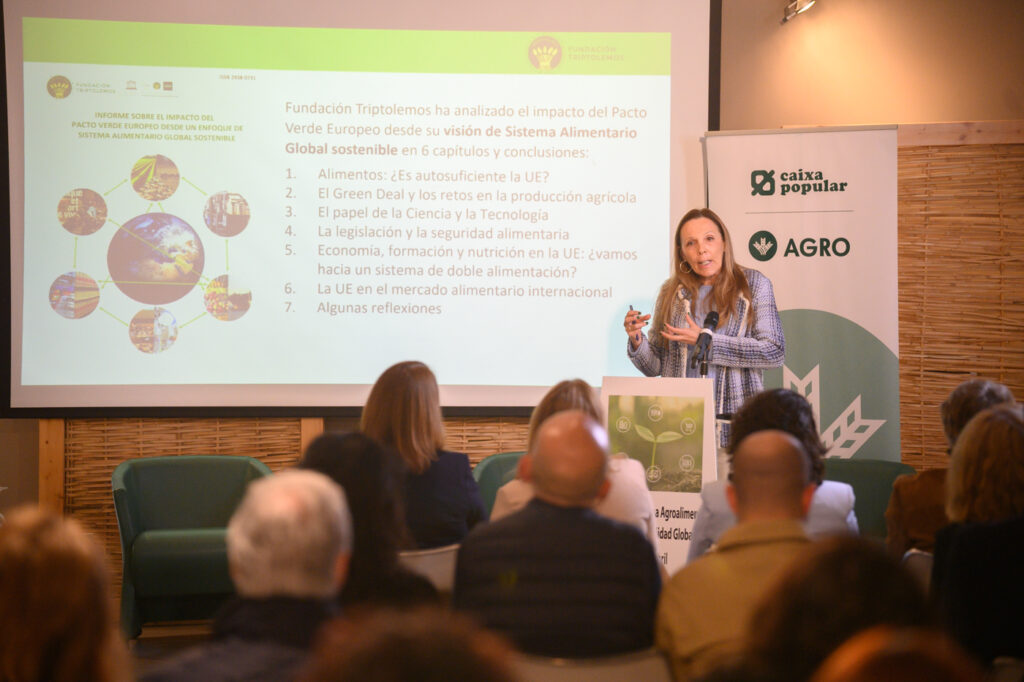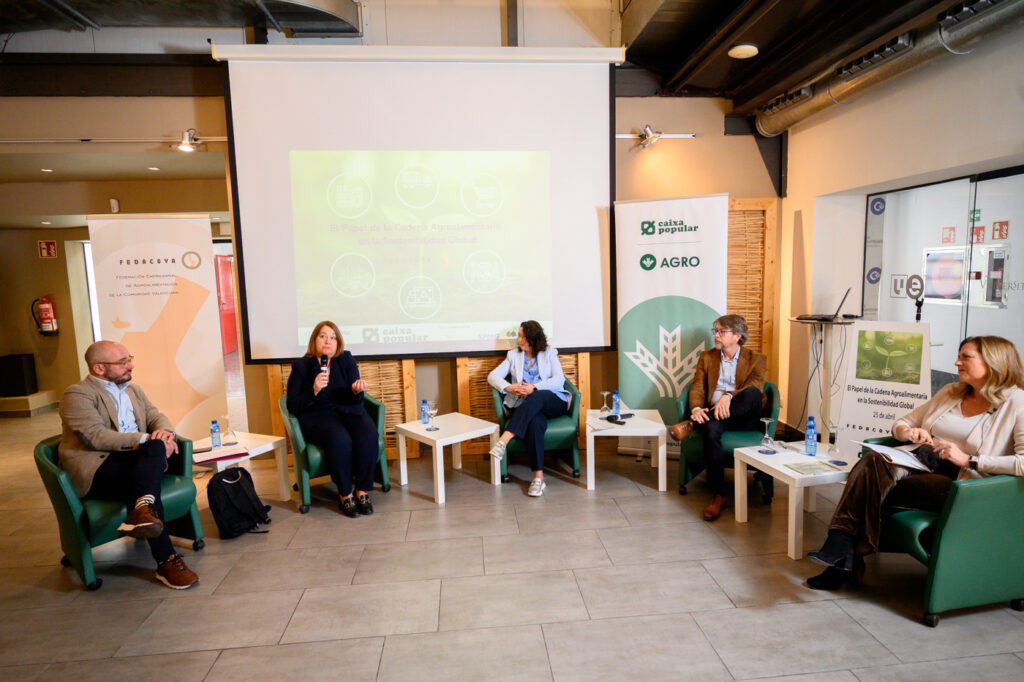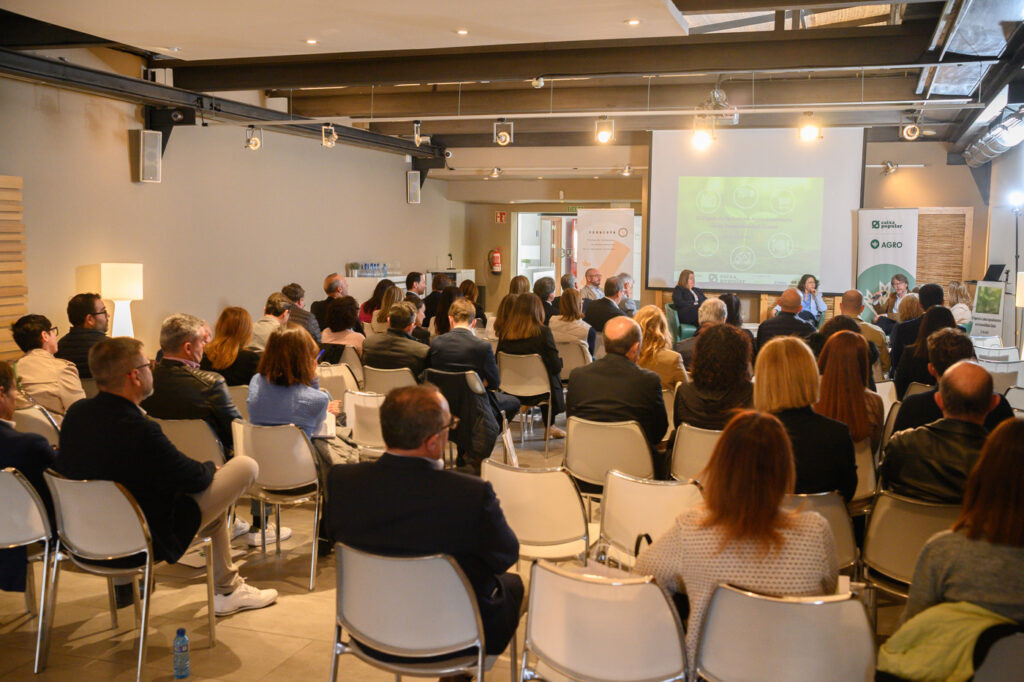- FEDACOVA today held the conference ‘The Role of the Agri-Food Chain in Global Sustainability’.
The Valencian industry has anticipated legislative requirements, but demands more realistic policies.The agri-food sector is calling for unity of action and joint work by the whole chain in order to face the challenges posed by the transformation towards a model based on sustainability. This is the main conclusion reached at the conference ‘The Role of the Agri-Food Chain in Global Sustainability’ held today by FEDACOVA at the ADEIT Foundation.
As Rafael Juan, President of FEDACOVA pointed out in his welcome address to the event, ‘the European Green Pact emphasises collaboration along the supply chain, producer empowerment, consumer education and commitment to competitive sustainability to protect human and planetary health, as well as the livelihoods of all actors in the food value chain’.
Yvonne Colomer, Executive Director of the Triptolemos Foundation, also expressed her views in this sense. During her speech ‘The impact of the European Green Pact from a global sustainable food system approach’, she stressed that food production has to find a balance with the sustainability of the planet, ‘but also with the needs of people to have food, and for this it is necessary for all links in the chain to row in the same direction’.
This aspect was also emphasised in the subsequent round table discussion, moderated by Leonor Sáiz, member of the Board of Directors of FEDACOVA. In this talk, the Deputy Director General for Climate Change of the Directorate General for Environmental Quality and Education of the Regional Ministry for the Environment, Water, Infrastructures and Territory, Cristina Vicent, explained that the path towards sustainability ‘involves the participation of all social agents together’.
Regarding the work that Valencian industry is carrying out in terms of sustainability, Rafa Muñoz, Director of Quality and Environment at Agua San Benedetto, pointed out that sustainability is not a product and must form part of the company’s mission. At San Benedetto we have added the ‘R’ for responsibility to those of reducing, recycling and reusing; among other actions,’ he explained, “we have an agreement with the local irrigation community, endorsed and supervised by the Júcar Hydrographic Confederation, to use the water left over from our production process and channel it to the surrounding crop fields”.
For her part, Marta Riesgo, Industrial Manager of Grupo Choví Alimentación, pointed out that the company has been working with recycled PET containers since 2015, without this being a requirement in her sector. Riesgo pointed out that, in order to carry out these actions aligned with sustainability, Choví is committed to R&D.
From the point of view of distribution, Pedro Reig, director of ASUCOVA (Association of supermarkets in the Valencian Community), stressed that this sector is doubly affected by the regulations, as they apply to both production and consumption. In this sense, he highlighted the work of the distribution sector in favour of sustainability in four areas: recyclable packaging, with recycled plastic and eco-designed packaging, aspects in which it is ahead of the regulation itself; energy efficiency on the shelf and in the shop, electrified or gas-powered goods transport and the reduction of food waste.
The need to reach the consumer
In this debate, the importance of reaching out to consumers so that they can play their role in sustainability was highlighted. For Pedro Reig, ‘the great challenge goes from being a supplier to helping people to live better’. Marta Riesgo stressed the importance of explaining messages correctly and making them simple. Meanwhile, Rafa Muñoz focused on the honesty of the industry, which has to be transparent and reach the consumer with the truth.
Cristina Vicent explained that our region has the Centre for Environmental Education of the Valencian Community (CEACV) to train, inform and raise awareness among Valencian society as a whole about the various aspects of environmental management, such as recycling household waste, good environmental practices at home and an introduction to business environmental management.
More realistic policies
The round table ended with a reflection by Leonor Sáiz, who asked the Administration to set objectives ‘based on rationality and realism’. In this sense, the Quality and Environment Director of Agua San Benedetto said that policies are ‘more aspirational than realistic’. With regard to certain trends in the use of certain materials, Muñoz reminded us that ‘we cannot allow ourselves to go backwards in terms of food safety’ and pointed out that there is a lack of quality recycled material to meet regulatory requirements. The Industrial Manager of the Choví Alimentación Group also pointed out that there is a lack of technology to achieve the regulatory objectives in terms of packaging and that ‘food is a whole, what is inside and what protects it’.
Cristina Vicent commented that the Generalitat Valenciana is working to simplify and improve the processes related to regulation ‘taking into account timetables and scenarios’.
FEDACOVA was sponsored by Caixa Popular and with the collaboration of Exclusivas Energéticas, KPMG and Marsh.






